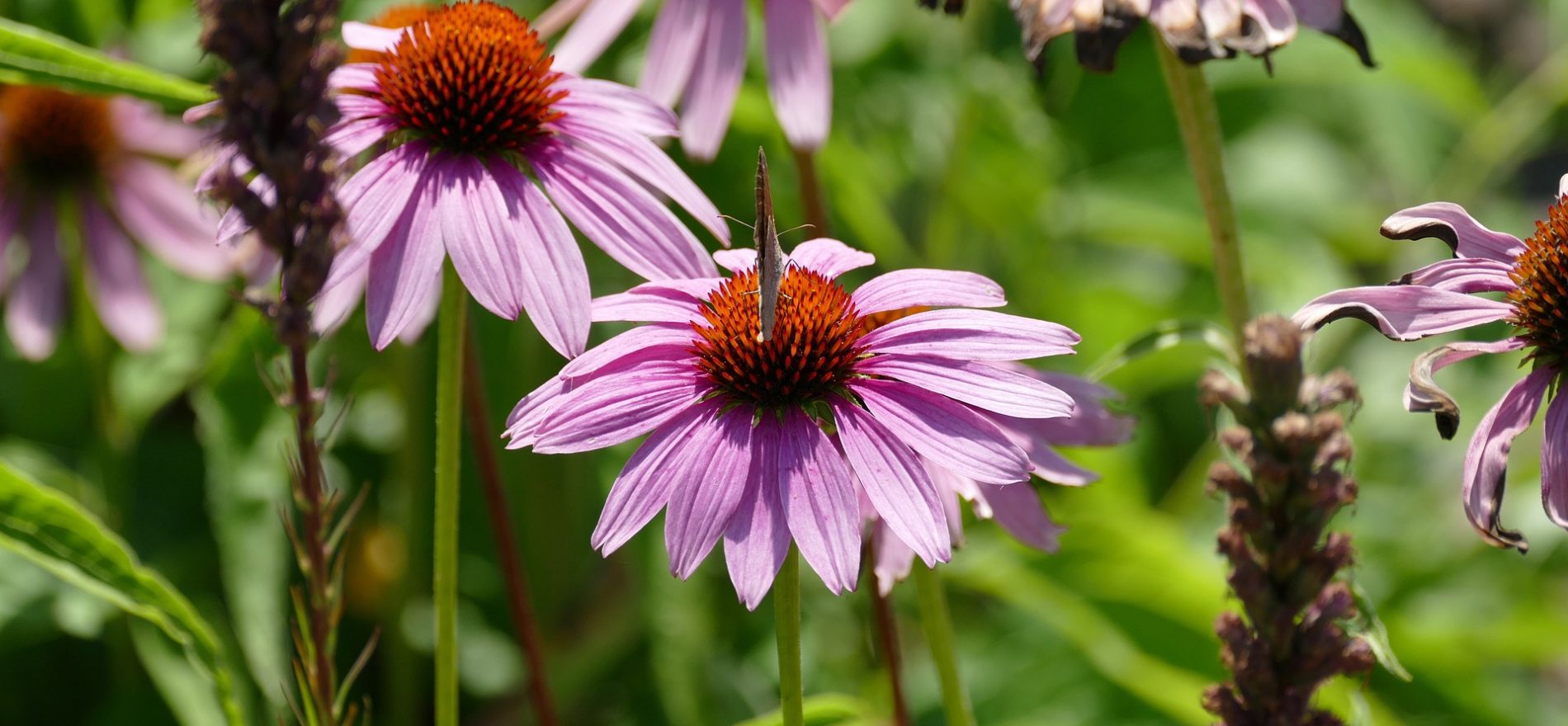During the flu season, many of us will be thinking of ways to keep the sniffles headache and coughing away. A healthy immune system is the best defense against illness. Some clinical studies in Europe and the United States have found that that Echinacea can strengthen the immune system. The studies have found specifically that Echinacea increases the amount of T-cells in the blood. Echinacea has become one of the most popular herbal remedies during the winter months.
What is Echinacea?
Echinacea is a plant that grows in North America and is cultivated in Britain. The roots and the above ground parts are used medicinally. Echinacea has been used as a herbal remedy in North America for many different ailments Although the genus Echinacea contain nine different species only three of them are used commercially. They are Echinacea purpurea, E. pallida and E. angustifolia . The E. purpurea is considered to be the more potent one. E. purpurea is the one recommended for immune boosting. Echinacea is marketed as teas, tinctures or capsules to prevent and treat upper respiratory tract infections. It is sometimes used as an anti fungal.
Is Echinacea effective for the Common Cold?
Many of the clinical trials conducted in Europe, found that Echinacea was able to minimize the severity of the common cold. However, some studies conducted in the United States have produced negative results. Some of the studies utilized a whole plant product of both E.purpurea and E.angustifilio. In 2006 a meta-analysis, was done to evaluate the effectiveness of Echinacea for the treatment of the common cold. The scientist found that subjects who took the placebo had a 55% greater chance of getting a cold, than the ones who took Echinacea. Looking at both negative and positive trials, it would appear that results can defer depending on the type of Echinacea utilized. There seem to be more positive results than negative results. There are those who view these negative results, as evidence that Echinacea is not effective. Sometimes, negative clinical trials are held out to be the dominant finding in relation to an herbal product and that is unfortunate.
Precautions
The quality of Echinacea products appear to vary widely. Therefore, care should be taken when buying teas or supplements try to buy from reputable and established companies. Some manufacturers will guaranty potency, buy those when you can. Echinacea is most effective if taken at the first sign of a cold. There are some notable precautions. Those with tuberculosis, autoimmune diseases and liver disease should not take this herb. There have also been some documented allergic reactions resulting in rash or hives. Overall, Echinacea is considered a fairly safe herb.


